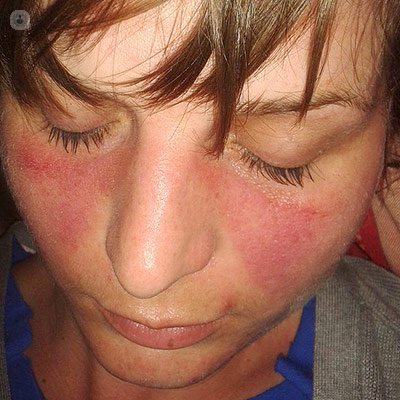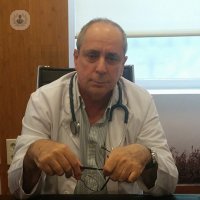Lupus, most have a very benign course
Written by:Lupus, better known as Lupus Erythematosus (SLE hereafter) is an autoimmune disease that is characterized among other things by the presence of autoantibodies (antibodies directed against proteins of our own body). It affects all races, although the black race is suffering severe SLE.
The disease has a clear predilection for the female sex, and who suffer 9 women for every male. The age of onset is also characteristic as though you can do at any age, usually begins at the end of the first decade in either the second or third (18-35 years).
Causes of Lupus
Like all autoimmune diseases, there is no single factor that causes Lupus. At the origin of SLE they are involved genetic, infectious, hormonal, and probably exogenous factors (environmental). The disease develops when several of them agree on the predisposed person.

Symptoms of Lupus
SLE can affect multiple organ systems, so the symptoms depend on the organ that is affected. For example:
- Skin after sun exposure is one of the systems that frequently affects. The patient usually consults after the appearance of a rash on the face, arms, trunk or thighs. However, not always the skin lesions appear after sun exposure.
- The apparatus locomoto r also affected very often. The patient may have a very similar arthritis Rheumatoid Arthritis.
- There may be general symptoms in outbreaks, among which the most significant are high fever, fatigue and muscle aches.
- The kidney (both) is one of the organs that can affect that requires aggressive treatment to prevent renal failure. Many times the patient has no renal impairment or it is so small that it does not require significant treatment unless closely monitored.
- Neurological involvement is another serious effects of SLE. You can give varied manifestations, from psychiatric disorders to diseases that cause neurological deficits.
- Another common manifestations usually the presence of repeat abortions. In these cases it is usually associated with the presence in blood of antibodies called anti-phospholipid.
Diagnosis of Lupus
The diagnosis of lupus resides in the clinical picture and the presence in the blood of a series of fairly characteristic antibodies: ANA (in Spain are often called AAN: antinuclear antibodies) which may be present in many other processes: anti-native DNA ( characteristic of SLE), anti-Sm (SLE specific but appears in a very low frequency from -20 to 30% -); anti Ro and anti La, also present in other autoimmune diseases.
Treatment of Lupus
Lupus treatment depend on the clinical status of patients and affected organs. For both, in any way you can set a standard therapy to fight the disease pattern.
A high percentage of SLE have a very benign course (especially in our environment) and treatment only requires chronic administration of hydroxychloroquine - (Dolquine is the trade name). -very Old- this drug has become an essential product for the control of the disease, when it has no serious manifestations. If the patient has systemic symptoms or arthritis, you may be associated nonsteroidal antiinflammatory drugs (NSAIDs) or corticosteroids at low doses.
When the disease has serious complications (such as kidney) will have to resort to steroids half or even high doses and eventually immunosuppressants.
Can you prevent lupus?
The answer is not in doubt and NO. There is today no medical protocol that is aimed at preventing the disease.


